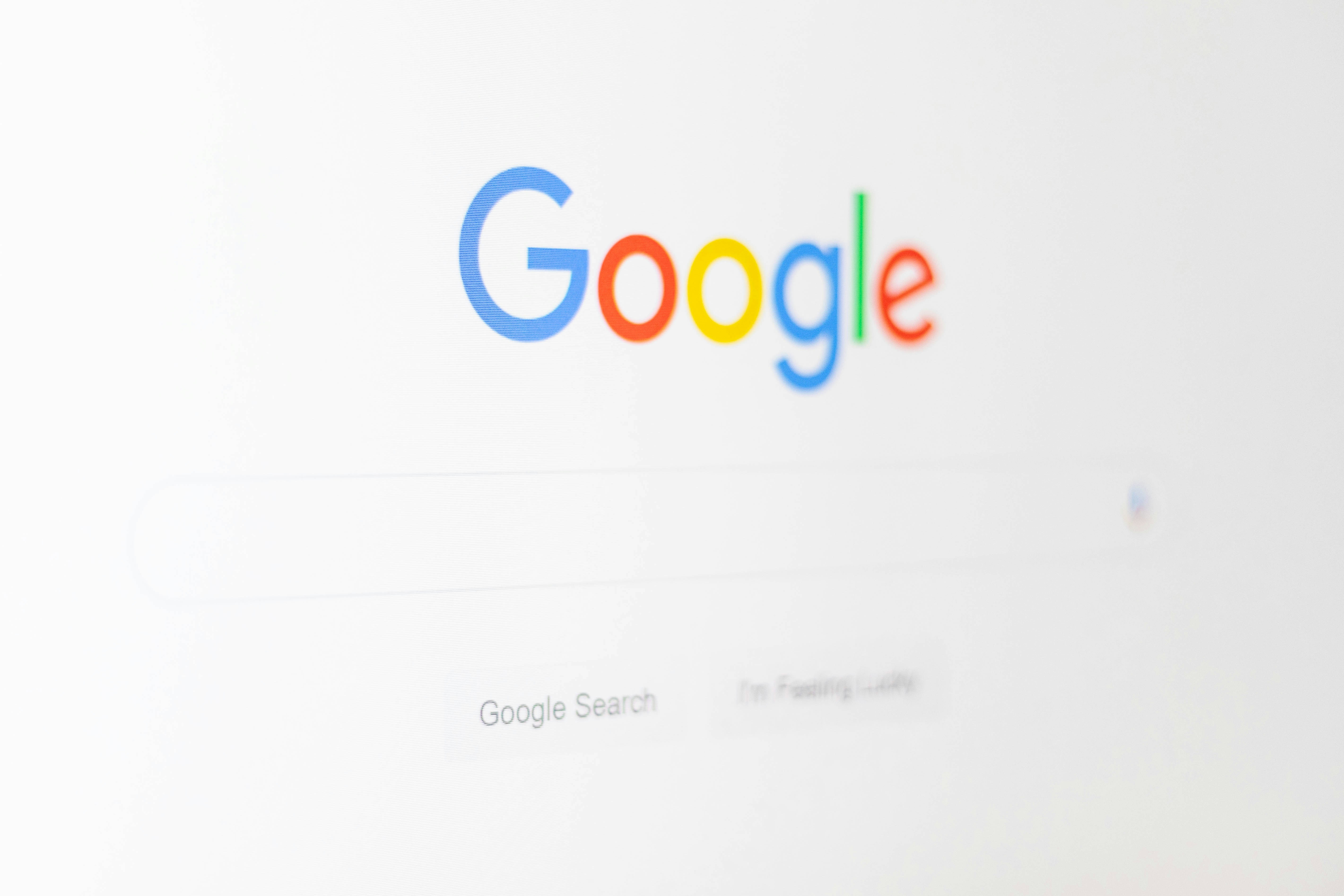The Future of Google Search
Since it launched way back in 1998, Google Search has been a
major part of our lives. We use Google Search without even thinking about it, for
everything from online shopping to finding new potential clients, and the
integration of maps, YouTube, and more have made it even more prominent day to
day.
The word ‘Google’ has even become a verb, part of the
language for millions around the world. When you end up in the dictionary, it’s
safe to say your product is a success.
However, like all products, the bigger Google Search gets
the more pressure its parent company is under to keep pushing forward. So today
we’re going to take a look at some of Google Search’s recent changes and make
some predictions about where it will go next.
But first, let’s discuss why Google is so successful.
Why Google Works
The best tech inventions have always been ones that speed up
our lives. The wheel made us move faster, the transistor helped us send signals
faster, and the internet gave us access to information much faster than
checking out a book from the library.
All that information was great, but it was a disorganised
mess in the early days. Google’s founders, Larry Page and Sergey Brin, designed
a way to rank these pages by popularity, using algorithms to ensure that you
always found what you were looking for.
This was a monumental success. The chaotic internet was
wrangled successfully, and Google Search became the foundation of what we see
online today. The power of its algorithms can’t be understated; with over a
billion websites currently on the world wide web it’s impressive that they’re
all given a value and fed to us in a handy list whenever we type something into
the search bar.
To demonstrate the effectiveness of the algorithm, Page and
Brin added the ‘I’m Feeling Lucky’ button below the search bar. If you’ve never
used it before, it gives you the no.1 result from your search, instead of the
pages of options you get normally. This was a show of confidence from Google –
they knew how effective their new search engine was and added a shortcut for
even quicker results.
Why is Google the Best Search Engine?
Many people assume that Google Search was successful because
it was the first search engine. This is far from the truth, and Google had
multiple competitors that had existed for years before they launched theirs.
The biggest among these were Yahoo!, created by David Filo and Jerry Yang, who
also introduced WebCrawler, the first SE that could index entire pages. There
was also Archie, the first search engine which was fading but still had its
uses, Lycos, which was designed for cataloguing documents, and JumpStation,
which had a similar layout to Google Search but lacked the algorithm.
As well as the algorithm, Google’s remarkably simple layout
was part of its mainstream appeal. In those early days of the internet,
companies wanted to cram in as many features as the technology would allow,
whereas Google kept things accessible, making it perfect for even the least
tech-savvy users.
This is a trap many newer search engines fall into. Google
Search has more rivals than ever, with new faces like DuckDuckGo trying to get
a piece of the pie. But although these sites, as well as old favourites like
Bing and Yahoo! have a very loyal user base, Google Search has had a clear
monopoly for over two decades. If there’s any doubt in that fact, here’s
another: the most searched query on Bing is ‘Google’.
Google’s Search Updates and Innovation
Getting ahead in tech is tough; staying ahead is even more
difficult. But Google Search has managed it by constantly updating its
algorithms and adding more features that benefit users and keep investors happy
(although it seems that the latter is more important a lot of the time!).
These algorithms ensure that you always see the best results
for you. SEO pros like us have to work hard to keep up, creating quality
content that people and Google like to see, as well as fixing any issues on the
back end.
Most changes are things you’ll never notice unless it’s your
job to. What makes things easier for us is that Google always shares a press
release after every major update, giving us the lowdown on what’s new and what
we should be focusing on. Although Google Search can feel like the enemy
sometimes, in truth it’s a collaboration.
The biggest changes to Google Search by far have been in
relation to AI, which brings us to…
AI and Google Search
AI has been the biggest buzzword in tech for a few years
now. It seems that every company listed on the stock market is investing in AI
in some way, either developing their own AI models or using existing ones to
improve their services.
Google, as one of the titans of tech, has not been shy about
its AI investments, especially with Google Search. Unless you’ve been living
under a digital rock, you’ll know about its Gemini-powered AI Overview, a
generated response to anything you search for. This is very useful, especially
if you ask a question and want a quick answer, as there is no longer a need to
scroll through an article where you’ll likely be bombarded with ads and popups.
In the past there was a highlighted snippet feature that would take you to the
section that answered your questions, but sometimes valuable context was lost
in the process.
The AI Overview has not been without its teething problems,
and its results are still less reliable than Google and users would like, but
these errors are becoming less frequent with each update.
One concern with the AI Overview is how much space it takes
up on the page. Over the years as new features have been added, such as FAQs
and rich snippets, the classic 10-result page one became 7 or 8, and the AI
Overview is taking up even more space.
This has already had an impact on SEO companies; the already
hyper-competitive page one is tougher to get clients onto than ever before. However,
we and many others have adapted to this change, aiming to get content into the
AI Overview itself, which results in a massive increase in traffic when
successful.
We always keep our fingers on the pulse of what Google and
its rivals do with their search engines, so we can ensure that our clients are
always seeing the best ROI. But we might soon see a much bigger change that
could send us back to the drawing board.
What’s Next for Google Search?
There have been rumours going around for a while regarding
what Google intends to do with Search. Some are saying that the AI Overview
will be the last major change for a while, but a redesign could be in the works
that makes it as user-friendly as it used to be.
Other experts think that Google Search as we know it could
be fully replaced by an AI chat function. Instead of the classic list of
websites and their meta descriptions on each page, Google Search could be
entirely prompt-based, similar to an LLM like ChatGPT. You’ll enter your query,
and the AI model will suggest websites that have the information you need or
will just answer it using a combination of information taken from those
websites, again similar to what ChatGPT does now.
This does present an issue. As useful as ChatGPT is for many
people, it is not a search engine and using it as one leads to false
information and potentially misleading answers.
One of the challenges with LLMs is that they have to
provide an answer. This is why ‘hallucinations’ happen, where an LLM
essentially makes up an answer because it can’t say ‘I couldn’t find what
you’re looking for’. The bigger models do this sometimes, but they can’t
determine what is right and wrong, so may give you a confident answer not
knowing that it’s complete rubbish all because it misinterpreted what it found
online.
Losing the classic list of websites would shake up the world
of SEO in a lot of ways. Content would become even more powerful than it is
now, us copywriters would be working overtime to get content picked up by
Google’s bots. But websites would still exist, and there are plenty of other
search engines out there that would continue using the current formula. For now
anyway.
It’s hard to say what exactly the future holds for Google
Search. But one thing we know for certain is that it will continue to be the
go-to search engine, although it might start to look very different to the one
we know and love. No matter what, we’ll always keep you informed of these
changes so you can invest your marketing budget wisely.
For more information about SEO, copywriting, and our other
services, please don’t hesitate to get in touch. We look forward to hearing
from you!




